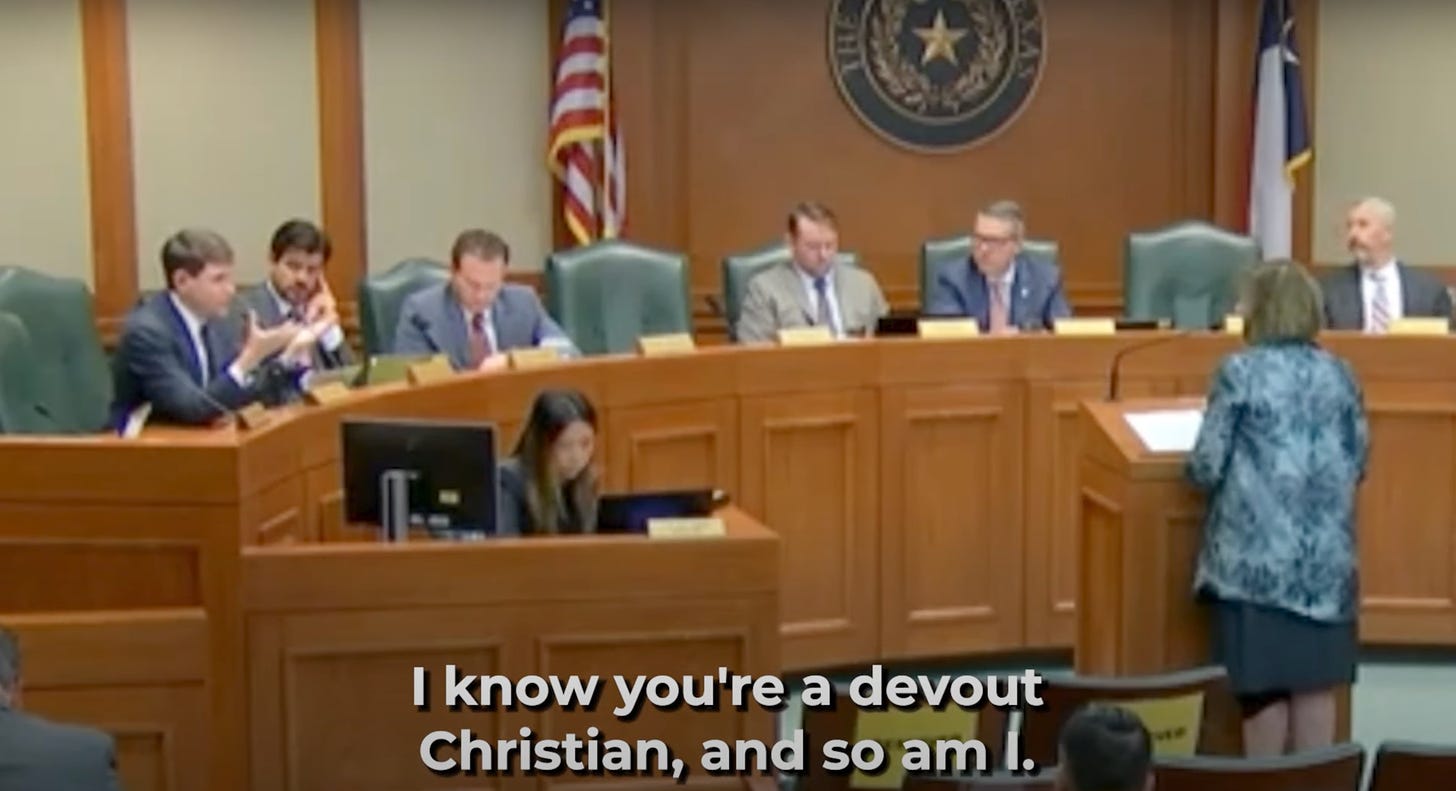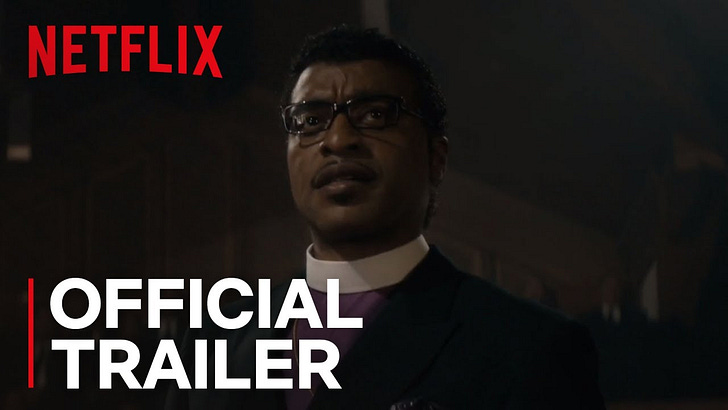The Texas legislature is in session. This might seem an innocuous statement unworthy of noting on the order of small talk about the weather. “Not too hot for May,” you might say, “what with the Texas legislature in session and all.” The what? Good God, man. The legislature, you say? Best take measures, precautionary and those by the dram, immediately if not retroactively. Good lord. It’s said that the Texas legislature only meets for six months every other year to limit the damage they might do with more time to make laws.
The late Molly Ivins said best when she wrote, “All anyone needs to enjoy the state legislature is a strong stomach and a complete insensitivity to the needs of the people. As long as you don't think about what that peculiar body should be doing and what it actually is doing to the quality of life in Texas, then it's all marvelous fun.”
Setting the aperture so, then, to limit our depth of field so we’re not distracted by what legislators should be doing, we can better appreciate a recent discussion about the Ten Commandments. If the exchange fell short of marvelous fun, it’s only because the conversation led to a better place.
On May 2, in a windowless hearing room in the underground extension of the giant, pink granite capitol in Austin, the House Public Education Committee met to discuss a bill requiring schools to post the Ten Commandments in every single classroom in Texas. To be fair, I can’t remember them all since we memorized them back in Sunday School, so just so we’re on the same page, this is what they want up on posters in front of schoolchildren.
The Ten Commandments
I AM the LORD thy God.
Thou shalt have no other gods before me.
Thou shalt not make to thyself any graven images.
Thou shalt not take the Name of the Lord thy God in vain.
Remember the Sabbath day, to keep it holy.
Honor thy father and thy mother, that thy days may be long upon the land which the Lord thy God giveth thee.
Thou shalt not kill.
Thou shalt not commit adultery.
Thou shalt not steal.
Thou shalt not bear false witness against thy neighbor.
Thou shalt not covet thy neighbor ’s house.
Thou shalt not covet thy neighbor ’s wife, nor his manservant, nor his maidservant, nor his cattle, nor anything that is thy neighbor ’s.
The idea that we need more religion (that is, Christianity) in public schools has been around since the 1962 Supreme Court decision that banned school-sponsored prayer. As New York Mayor Eric Adams recently said at a gathering of churchmen, “When we took prayers out of schools, guns came into schools.” Last year prayer got closer to the classroom, making it as far as the 50-yard line. That’s where the Supreme Court said a high school football coach in Bremerton, Washington, was allowed to lead his team in a prayer. One assumes the coach’s prayer is quite dissimilar to Buddy Garrity’s timeless postgame lament, “I know you truly are an all-powerful God to let such a crap team win.”
The Ten Commandments could be next. If you’re like me (see also: smartypants, liberal), your first instinct upon considering the Ten Commandments might be to question the priorities implied by their listed order. I mean, no argument that envy is bad. It’s not a deadly sin for nothing, but why does your neighbor’s house outrank your neighbor’s wife, and why is she grouped in with servants, cows, and other possessions? Moses, come on man. See? Now here I am in my comfy smart pants at a disdaining remove from danger. Oh, the cleverness of me. Shut up, Jason, we all get it.
Oh, the cleverness of me.
James Talarico, however, is not like me, and in this instance that is a good thing. That’s him in the picture above, the man gesturing wearing a blue blazer. After briefly teaching in west San Antonio, he got elected to the legislature as a Democrat just north of Austin. But when he was a kid he didn’t dream of becoming a teacher or a politician. He wanted to be a pastor, so last year he entered a Presbyterian seminary, which he attends when the legislature is not in session, though as you’ll see he carries his lessons into the legislature as well.
Representative Candy Noble, a 61-year-old Republican, began the hearing by thanking the chair for the opportunity to lay out the bill and then saying, “The Ten Commandments are foundational to our American educational system.” Our earliest textbooks, she said, “reflected this fundamental way to treat others and their property.”
But in 1971 and then again in 1980, the Supreme Court said that public schools and religion could not mix, removing these foundational truths from public schools. “The problem is that for the last several decades the expression of that historical heritage has been restricted,” she continued.
“The Ten Commandments are foundational to our American educational system.”
“Now, however, the legal landscape has changed.” If that football coach in Washington state could lead a prayer, and if they could have a Ten Commandments monument on the capitol grounds, then why not “bring back this historic tradition of recognizing America’s foundational heritage”?
When she closed, Noble, as is tradition, said she was “happy to answer any questions,” and Talarico raised his left index finger to signal the chairman, who assumed there would be no questions and didn’t notice him. “Oh, I’m sorry, yeah, Representative Talarico.”
Talarico thanked the chairman and Noble — the niceties are important — before saying, “I have lots of questions about this bill” before first acknowledging that the “Ten Commandments are important to me personally. They’re important to my faith, and I’m sure they are important to many people here on the dais. And in fact I think the Ten Commandments are hard to obey, and they’re meant to be hard to obey, and I don’t always think that the legislature obeys the Ten Commandments, so I just wanna walk through a couple.”
“Ten Commandments are important to me personally.”
Before we get to his questions, a programming note: I tried to the best of my ability to reproduce every noise that came out of each of their mouths. I did not clean up Talarico’s language, nor did I do the opposite to Representative Noble.
On keeping the Sabbath holy: “Are you aware the legislature is scheduled to meet this Saturday?”
“I… I am aware of that,” said Noble.
“So that would be violating the…”
“I contend,” she interrupted, “that that is a hard… you’re right.”
On thou shalt not kill: “Are you aware the legislature has refused to outlaw the death penalty?”
“Um, again, uh, we’re using the words that are on the, uh, the [Ten Commandments] monument because it has been upheld by the Supreme Court,” said Noble, “but we’re talkin’ about murder here and not, and not, justice… and certainly not war.”
“The translation that I’m looking at,” said Talarico, “in your bill is ‘Thou shalt not kill.’”
“The translation that I’m looking at in your bill is ‘Thou shalt not kill.’”
“Absolutely, and that is, that, and the reasons we are using that language, which again is because that is the language that has been upheld by the Supreme Court.”
Talarico repeated the Ten Commandments’ admonition against adultery.
“Be true to the one you love,” said Noble brightly, on more comfortable ground now.
“And the second commandment, which I think is the most important, ‘Thou shalt not make to thyself any graven images,’ meant to prevent idolatry…”
“Absolutely,” interjected Noble.
“…the creation of idols, the ideal that some people would try to make an object, maybe two tablets, to worship, rather than worshiping the god behind those two tablets,” he said. “Are you worried that this bill is idolatrous?”
She was not.
When invited to elaborate, she said, choosing her words carefully at first, “This bill is reflective of the principals we need in our classrooms, and as a former school teacher, I know you are, too, what do we need more than the reasons why we are doing the things that we are doing. Why do we not celebrate the need to respect others, to respect authority… I contend that this is absolutely needed, and, um, I get where you’re going with that particular commandment, but [the capitol’s Ten Commandments monument]’s there, and it is historical, and it is foundational.”
“I get where you’re going with that particular commandment.”
“Would you be open to an amendment saying that if a member of the legislature violates these commandments, that we can no longer mandate public school teachers put it in classrooms?”
She would not.
Talarico brought up the millions of Texas schoolchildren of different faiths, including the refugees whose families escaped the Taliban in Afghanistan. He noted that a law requiring school teachers to hang the Ten Commandments on the wall would effectively establish Christianity as the state religion.
“Is there a difference…” he began.
“So, again,” she interrupted.
“…between…”
“Yes, yes.”
“…prohibiting an individual school employee from practicing or expressing their faith versus the state now mandating that one particular faith be expressed in the classroom.”
“So, um, are you referring to the faith of Judaism, because that’s where this comes from,” asked Noble.
“Sure,” said Talarico with a “why not?” note in his voice.
“Is that what you’re referring to?”
“Yes.”
“I contend that the historic and foundational, um…” began Noble, before pausing for three long seconds in which the only sound in the room was the air conditioner before continuing, “…reference of the Ten Commandments in our nation’s history is what we’re looking at here and not, uh, not the bunny path that I think you’ve taken us on.”
Would she, continued Talarico, be open to posting the foundational documents of other religions?
“Again, that is not foundational to our American judicial and educational systems,” she said.
“Your bill…” he began.
“That would,” she interrupted, “not fit into that, that criteria which the Supreme Court has set forth.”
…foundational…
“There are many documents that would, that have influenced the American constitution,” said Talarico, “including the Code of Hammurabi, the Magna Carta… Would you be open to a teacher posting one of those instead of the Ten Commandments.”
She would not.
What about other major world religions, such as Buddhism and Hinduism, that a growing number of Texans belong to? Could one of their religious doctrines be posted in the classroom?
“Again,” said Noble, back to choosing her words carefully at first before briefly losing grammatical coherence, “we are talking about something that has historically been in our education system in our earliest textbooks in America were these Ten Commandments, and, and, and… Actually lots of bible references were in our earliest American textbooks. That’s what we’re talking about here. I’m not familiar with what you’re talking about — I’m familiar with the Magna Carta — but the others, I’m not familiar with, and so I can’t speak to those.”
“But do you see why, if our First Amendment is forbidding the state from establishing a state religion,” asked Talarico, “that mandating that one tradition be elevated above the rest would be a violation of that First Amendment?”
“I disagree with that, because again, our judicial system and our educational system… This is foundational to them,” said Noble, leaning into that one word as if it was load-bearing.
This is foundational.
“I’ve listed the other things…”
“And I am…”
“…that are foundational as well.”
“…I am so um, ah… If we don’t know where we’ve been, how do we know where we’re going. I, I love history, and this is very foundational to the history of our nation.”
“But I’ve just listed other documents that are also foundational, and you’re not willing to include those in the bill, it’s only…”
Nobel interrupted to say that she wasn’t entertaining any amendments.
“So it’s only the Ten Commandments,” restated Talarico.
“Absolutely,” affirmed Noble.
“This is very foundational to the history of our nation.”
Talarico brought up how when he supports schools teaching empathy, kindness, and basic sex ed, he’s told that would infringe on the roles of parents.
“But now you’re putting religious commandments, literal commandments, in the classrooms, and you’re saying that’s the state’s role,” said Talarico. “Why is that not the parents’ role?”
Six seconds went by. You could hear someone shift in their chair, making it squeak.
“The..” she said, quickly followed by a short sigh that sounded almost exasperated. “That’s really an interesting rabbit trail that you’ve gone on with that, because really what we’re talking about here is…”
Can you guess where she’s going to go?
“…a historical, foundational…”
There is it.
“…document to our nation’s education history and our judicial history. And, and, um, and those other things are great and interesting, but they’re not foundational to us, educationally and judicially.”
“What we’re talking about here is a historical, foundational document to our nation’s education history.”
Talarico asked if she would be open to parents having to consent before their children went to classrooms where the Ten Commandments were posted. She would not.
“So you don’t want parental consent when it comes to their children receiving religious commandments?”
“I don’t believe… again, I think that these are foundational to, to, to bein’ a good, um, to bein’ a good citizen and being a good member of a classroom, and, and, I know that our teachers are more and more and more having to fight for, um, classroom management over the behavior of students, and I don’t think that these commandments…” She’s chuckling now. “…would, ah, in any way… I think these commandments would help with that, with that classroom management need.”
Talarico didn’t press the point and thanked her for answering his questions before making a comment.
“I say this to you as a fellow Christian… Representative Noble, I know that you are a, a devout Christian as well, and so am I. This bill to me is not only unconstitutional, it’s not only un-American, I think that it is also deeply un-Christian. And I say that because I believe that this bill is idolatrous, I believe that it is exclusionary, and I believe that it is arrogant, and those three things in my reading of the gospel are diametrically opposed to the teachings of Jesus.
“I say this to you as a fellow Christian…”
“You probably know Matthew 6:5, when Jesus says, ‘Don’t be like the hypocrites who love to pray publicly on street corners. When you pray, go into your room and shut the door and pray to your father who is in secret.’ A religion that has to force people to put up a poster to prove its legitimacy is a dead religion, and it’s not one that I want to be a part of. It’s not one that I think I am a part of.
“You know that in scripture it says that faith without works is what?”
“Dead,” she said. She’d turned off her mic, so her voice, which had been high and clear before sounded quiet now in the room.
“Is dead,” agreed Talarico. “My concern is instead of bringing a bill that will feed the hungry, clothe the naked, heal the sick, we’re instead mandating that people put up a poster.
“Instead of bringing a bill that will feed the hungry, clothe the naked, heal the sick, we’re instead mandating that people put up a poster.”
“And we both follow a teacher, a rabbi, who said, ‘Don’t let the law get in the way of loving your neighbor.’ Loving your neighbor is the most important law. It is the summation of all the law and all the prophets. I would submit to you that our neighbor also includes the Hindu student who sits in a classroom, the Buddhist student who sits in a classroom, and an atheist student who sits in a classroom. And my question to you is, does this bill truly love those students?”
“I’ma go in a different direction than I think you’re trying to lead me,” she said, “and that is that…” Another short sigh and four seconds of listening to the air conditioner. “…a very great wrong was done in our classrooms with that 1980, um, decision, because that, they were, uh, this document was in classrooms prior to that. In fact I think that this, this bill actually rights a wrong that was done all those years ago based on now what is considered a failed decision by the Supreme Court. So I contend that we are righting a wrong, not causing one.”
“Last thing I’ll say,” said Talarico, “is I just worry that this is what gives us religious people a bad name, that instead of living out the way of Jesus, we’re instead imposing our beliefs on other people. Instead of leading by example, we’re leading by mandates. And so I’m very offended by this legislation. I know you and I have worked together, and I’m not casting aspersions on you, and I would love to work with you, uh, but as it’s currently written, I find this to be a deeply offensive bill.”
“This is what gives us religious people a bad name, that instead of living out the way of Jesus, we’re instead imposing our beliefs on other people.”
Talarico thanked the chairman and turned off his mic. There was no applause while the chairman asked if anyone had more questions for Representative Noble. This is Texas, not television, and there are rules about decorum. The committee didn’t vote on the bill, likely dooming its prospects with less than a month left in the session.
In other words, Talarico seems to have won.
It’s likely that if you’re reading this — most of you are in Texas and decidedly liberal — that you saw clips of this exchange on social media or in national news. It wasn’t important because the bill is likely dead but because he stood up for a pluralistic vision of America in the face of Christian nationalism in a C-SPAN take on “America, f*ck yeah!”
To be sure, Talarico brought receipts. It felt good to have him describe how this bill offended his understandings of Christianity and America, and not in the Jon Stewart “I’m about to make you look stupid because I’m smarter than you are” way but in a manner that conveyed that the stakes were real for him, too. His faith was bigger than a poster. He was righteously angry without being, as we so often are, self-righteous.
He was righteously angry without being self-righteous.
Which brings me to this last lesson that the soon-to-be Rev. Talarico showed for us and the example he set. She talked about “you” (“That’s really an interesting rabbit trail that you’ve gone on...” “not the bunny path that I think you’ve taken us on” “…you’re trying to lead me.”) in a way that lacked empathy and trust. (Also, seriously, what is it with her and rabbits?) From her isolated position at the lectern in front of the dais, it probably felt like she talked, you versus me.
But Talarico insisted upon their common humanity. “I know you're a devout Christian, and so am I,” he said. “This is what gives us religious people a bad name.” “I know you and I have worked together, and I’m not casting aspersions on you, and I would love to work with you.” Talarico told a story that even included those who would impose Christian nationalism on the most religiously diverse generation of schoolchildren in history, and he did it not with anger, judgment, or mockery, but with what appears to be love.
Tell the world as a love story, and we all might be better off.
Jason Stanford is the co-author of NYT-best selling Forget the Alamo: The Rise and Fall of an American Myth. His bylines have appeared in the Washington Post, Time, and Texas Monthly, among others. Follow him on Twitter @JasStanford.
Further Reading
We set up a merch table in the back where you can get T-shirts, coffee mugs, and even tote bags now. Show the world that you’re part of The Experiment.
We’ve also got a tip jar, and I promise to waste every cent you give me on having fun, because writing this newsletter for you is how I have fun.
Buy the book Texas Lt. Gov. Dan Patrick banned from the Bullock Texas History Museum: Forget the Alamo: The Rise and Fall of the American Myth by Bryan Burrough, Chris Tomlinson, and myself is out from Penguin Random House. The New York Times bestseller is 44% off and the same price as a paperback now!








Thank you, Jason! I know James. This exchange confirms my opinion that he has the intelligence and integrity to have a major impact, hopefully in greater positions in our state and national government. It also gives me hope that his generation may be able to create a better world than the one we are leaving them with.
Thank you for sharing the details of the religion in schools hearing. There are plenty of private religious schools. My mother was on the local school board when the SCOTUS decision came down. I think she was the only vote to stop having a voluntary Christian service. Even a local attny who knew they had no choice voted against SCOTUS decision. In future years they complied. This is a slap in the face of everyone of different faiths not mention aethists. Not very Christian of them.